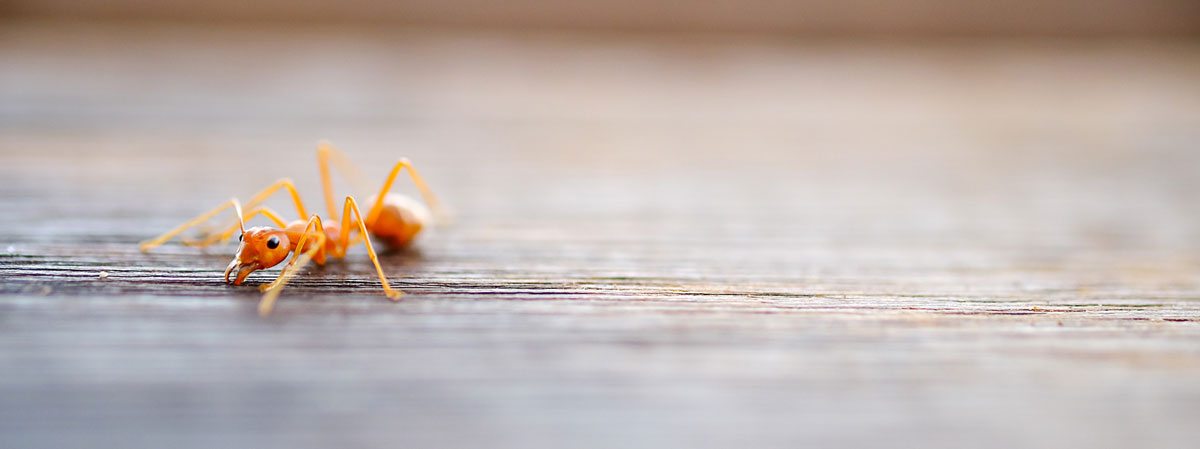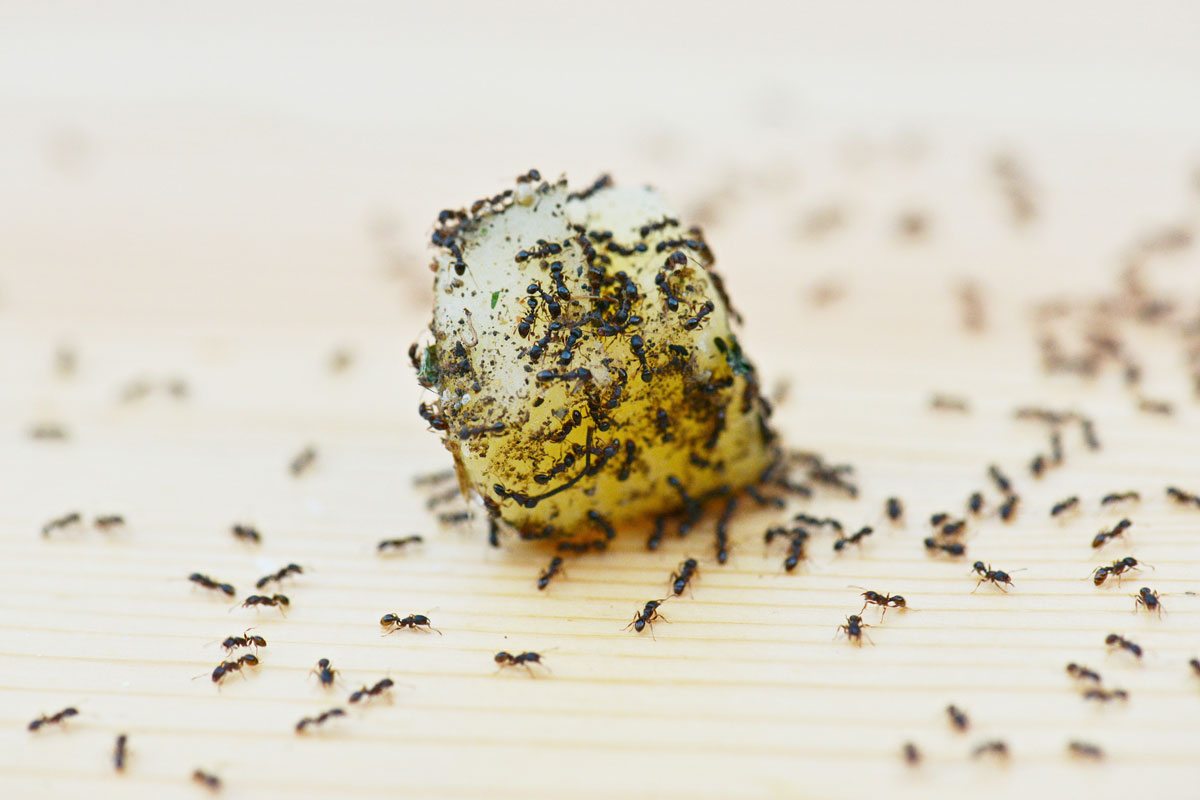Is there a worse thing to find in your kitchen than ants?
Maybe one or two things – a shark in the sink or a cover band getting between you and the coffee-maker. And to be fair to ants, they do us a favor by eating the larvae of other, more harmful pests. But if you’ve ever picked up a packet of sugar or a jar of jam only to find it swarming with ant life, you’ll agree there are few things more guaranteed to ruin a spring morning. That’s why we’ve assembled six handy tips to help you keep this crawling black menace far from your kitchen counters.
1 Keep your kitchen clean
I know – your kitchen is already clean! But ants are relentless in tracking down the faintest trace of food: they particularly love anything sweet, sticky or greasy, or meat such as pet food. Think of this as a great incentive for your family to stay on top of kitchen chores:
- Make sure counters, shelves, and cupboard surfaces are wiped thoroughly and often
- Dirty dishes need to be quickly washed (or at least shut tight inside the dishwasher)
- The kitchen should be swept and vacuumed daily
- The garbage is sealed tight and taken out regularly
- Your recyclables should all be thoroughly rinsed
Feed Fido and Snowball outside if you can – or sit their food bowls in a tray of water (see advice on containers below). Consider using vinegar to clean – it’s a great disinfectant, and ants can’t stand the smell.
2 Seal your containers
You know how if you’re struggling to open a jar, sometimes it helps to pierce the lid with a sharp knife? I used to love that trick – until the day I opened a cupboard to find that an army of ants had scaled a jar of marmalade and dropped through the hole to meet a sticky/happy end. To ant-proof your food, make sure the lids on all your containers are intact and tightly fastened. Wiping down the outside of the containers thoroughly is a good habit as well. You may also want to place particular ant favorites – such as jam, jelly or honey jars – in a shallow dish of water to provide a simple yet effective ant barrier.
3 Harness the power of your pantry
As I mentioned, vinegar is a great way to rid your kitchen of dirt and germs as well as ants – but so are other strong-smelling household items like lemon juice and peppermint oil. Meanwhile, spices, used coffee grounds, baby powder, and citrus or cucumber peel are also effective ant deterrents: use any of these items (whichever one smells best to you!) to create a line of defense at any entry point you think the ants might use. You can also use dish soap as a barrier or simply keep a spray bottle of soapy water handy to squirt at ants when you spot them.
One or two foods that are harmless to humans can be fatal to ants – try leaving them a treat of cornmeal or raw cream of wheat (farina). It’s a little cruel, but it is effective.

4 Block their entry
Deterring ants with cinnamon or dish soap might smell good, but it’s a little time-consuming and may not be 100% effective. A more permanent fix is to ensure that their entry points – any gaps in doors, walls or windows – are effectively closed, sealed, and caulked if necessary. This has the added bonus of insulating your home for greater energy efficiency and warmer winters.
5 The acid test
Boric acid is poisonous to ants. (It’s also poisonous to humans and other animals, so keep it well out of the way of children and pets.) You can buy ant poison kits, or you can create one yourself by creating a ring of boric acid around a sugary bait, such as a saucer of syrup. Use this method with caution, not only because of the danger to other creatures in your home but also because killing off too many ants could result in an increase in other household pests.
Remember, when using any kind of insecticide, use caution and follow the manufacturer’s directions.
6 Call in the pros
Although the methods above should be effective in keeping the local ant population under control and away from your chopping board, some ant varieties require the use of a professional. Deposits of fine sawdust, tiny broken wings, damaged woodwork, and rustling noises inside your walls can indicate the presence of carpenter ants. If you suspect you have carpenter ants, call a pest control professional to eradicate their nests before they do damage to your home. If your ant problem coincides with painful stings, you may have fire ants – play it safe and call in an exterminator immediately.
Summary
Most ant varieties are not harmful to humans and can actually provide a beneficial service by killing off other pests – but they are an unsightly presence in your kitchen and can contaminate your food. By following the advice above, as soon as the first few ants are spotted, you can use simple household items to keep your kitchen clean, fresh-smelling, and – most importantly – free from ants all summer long. Just remember to be vigilant for signs of the trickier species of ants that require professional extermination.
For tips on other pests like ants, mice, and bed bugs, view the rest of our Pronto Facts blog posts.


To get ants out of the honey jar. Kipping it right side up at all times fill it to the top with cool water and let it sit (don’t stir) the ants will float and you can skim them off the top of the water. Water will stay separated (top) from the denser honey (bottom). When all ants have floated and been removed, use a turkey baster or a straw to get the water out (all while keeping the jar right side up).